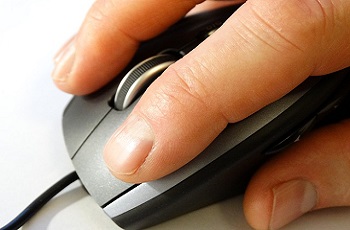The Role of Technology in the Future Fight Against Addiction

It’s an indisputable fact that many people are using technology to run their everyday lives.
It’s also true that the same technology keeps getting smarter and more advanced with each passing moment.
Currently, some areas of medical treatment are using technology to deal with extreme medical issues. It means that the same technologies can as well be utilized to fight against drug, alcohol and other types of addictions.
According to research, various kinds of psychotherapies including Cognitive behavioral therapy( CBT), and motivations enhancement therapy (MET); which are also some of the most effective addiction treatments, can be enhanced more by technology to bring about quicker outcomes.
Let’s, therefore, look at how technology can help in the future fight against addictions.
The Use of Technology-Assisted Care
A lot of research is currently in the pipeline to see how technology can be used in assisted-care. For example, The National Institutes of Health have in the recent years supported numerous studies and research in the design, and testing of unique computerized systems. Such systems can assist clinical treatments, but also help in the overall process of recovery from addiction.
Application of Computer-Based Training Programs
These are unique and interactive computer-based training courses which focus on various issues of addiction. The training consists of a number of learning games which are based on a previous CBT therapy system that has worked well in the past. The only change is that now that it’s computerized, and it consists of about 6 learning modules.
The classes touch on such key units as how to understand substance abuse and its changing patterns. Patients also learn how to cope with cravings, and ways they can refuse any offer of drugs and alcohol. This and the rest of modules are an effective way to target the affected individuals and bring them to a level where behavior change is key.
Use of Online Education Systems
The online education platform can be quite beneficial on the war against addiction. A perfect example is Therapeutics Education system (TES), which is a behavioral therapy program that can be accessed via the internet.
This exceptional package consists of 62 multimedia modules whose sole purpose is to reinforce behavior change; by supporting non-drug activities by proving some type of incentives for the same. This package is quite expansive by itself, and it covers such critical subject areas as relapse prevention skills.
It also offers knowledge in such areas as HIV, Hepatitis, and STDs prevention. This system comes with unique incentives which target abstinence and module completion. Other than that, patients can use TES treatment tools to address all kinds of substance dependencies.
Use of Downloadable Smartphone Apps
Treatment systems are quite overwhelmed and therefore most patients cannot just receive the care they need. Smartphone apps can come handy to improve the desired treatment and post-treatment behavioral outcomes for patients who are serious about recovery.
An example of such an app is Addiction-Comprehensive Health Enhancement Support System (A-CHESS). This application software is designed to offer emotional and all kinds of therapeutic assistance that is available 24/7.
A-CHESS is such a useful tool which comes with an alert system. The main aim of such an alert feature, for instance, is to warn a patient when they come so close to a compromising situation such as a bar, for those with alcohol dependency. Such is an obvious advantage of the app, that within a short time of usage, it is known to record impressive clinical outcomes.
Conclusion
Addiction and dependency is a worldwide malady, which can naturally be overwhelming; especially for treating clinicians. But as technology keeps getting smarter every day, many clinicians, as well as patients themselves, can make use of it for the desired outcomes.
Already there are internet education programmes that are proving to be quite effective as modes of therapy and behavior change. Smartphone technology also does hold the key for therapeutic behavior change among many patients; who otherwise cannot access immediate post-treatment clinical care.
With just a click of a button, most patients can benefit from unique emotional and therapeutic help via apps.
In addition, the convenience, and discretion which technology offers also means that lots of patients who are serious about change can simply make use of the overwhelming resources to be finally healthy.









